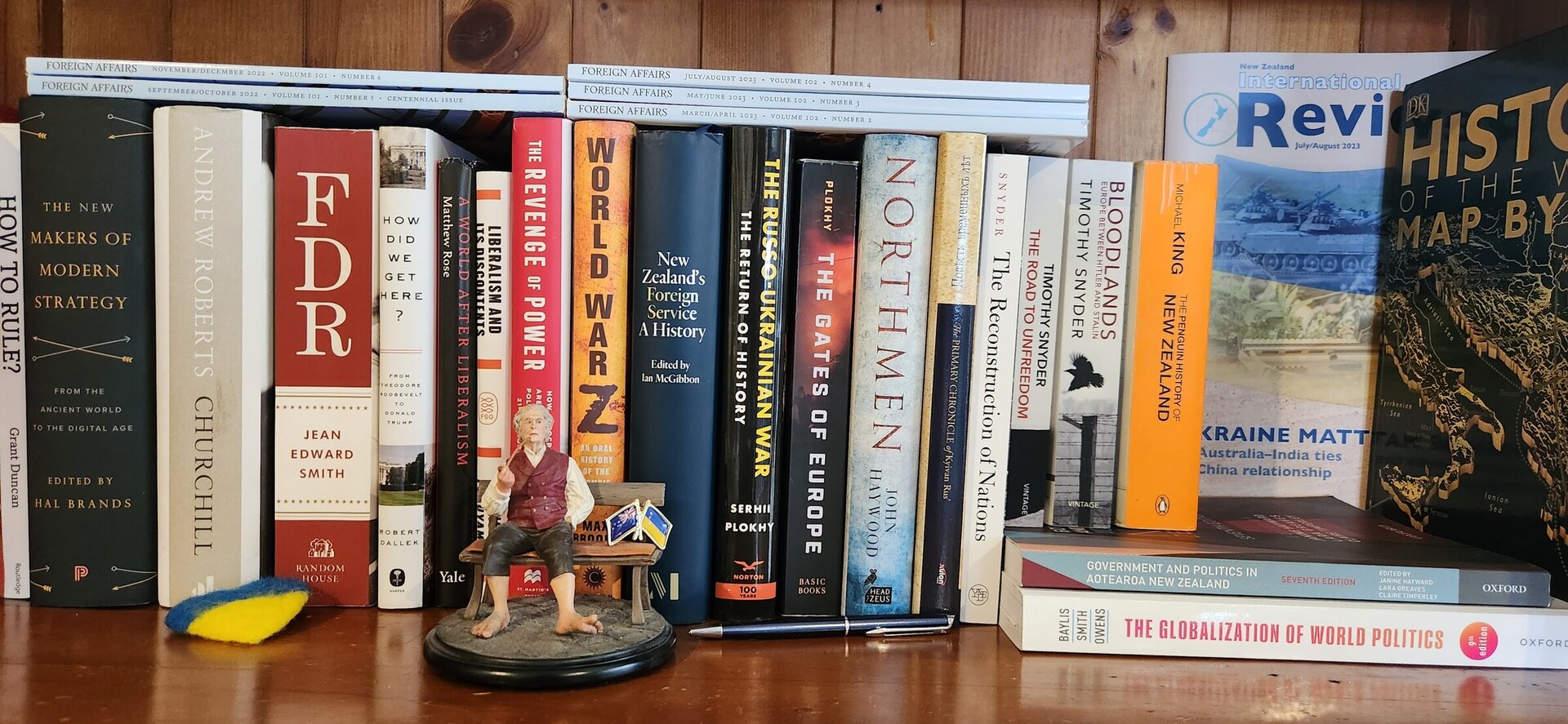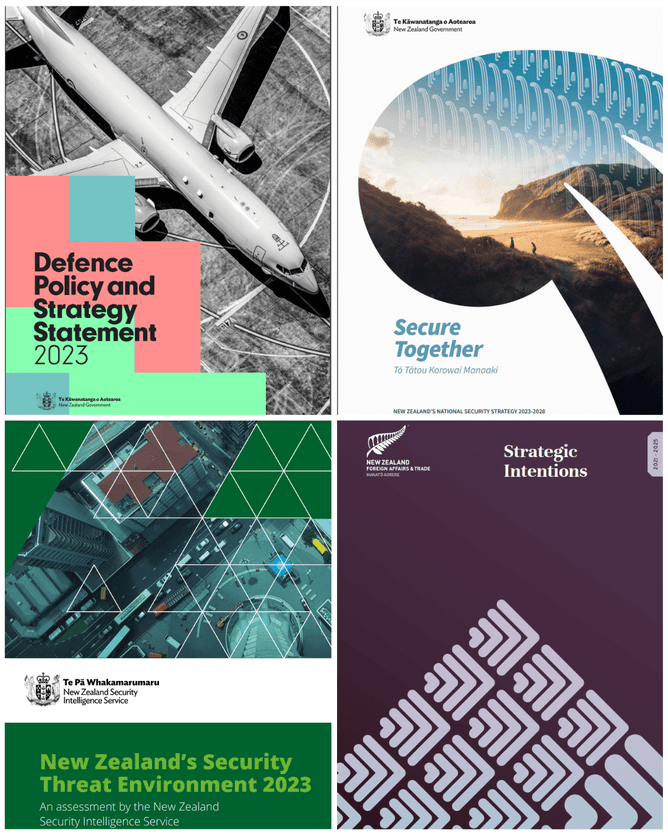"New Zealand has to balance its interests" when it comes to economics and security
Kiwis’ Q&A
In October 2023 New Zealanders will vote for the representatives in the next parliament as they duly do every 3 years. Even with the biggest war in Europe since the Second World War and the world on the brink of wider conflict between liberal democracies and autocracies, common Kiwis could not care less. The survey from May 2023 revealed that only 1% of population consider foreign affairs and defence to be key issues government should focus on. There is a common notion that “NZ has to balance the interests”, even considering “events in Ukraine, China, Iran, and Israel lately”.
I think it might be too heedless, even considering Aotearoa’s remoteness. In a long run there is no sustainable domestic politics without the foreign policy.
Foreign Affairs and Defence are of great importance in any country's Politics. One certainly needs to balance interests, but one is only able to do so - read, turning blind eye and deaf ear on the crimes of some cunning trade counterpart(s), with threats downplayed and seemingly far away or unreal only - until it is too late. There is a history to back the point.
- Great Britain certainly had to balance its interests in 1930s being very interdependent economically with Germany and having rather deteriorating military capabilities. To balance those interests, it turned a blind eye on the annexation of Austria and deaf ear to the pleas of Czechs facing hostile takeover of arguably the most industrial region in Europe outside Germany those days - Sudetenland. We all know how events unfolded after those appeasements. One might argue Chamberlain bought Britain time - that might be the only valid argument in my eyes for New Zealand to balance interest with potential adversary(es), but only those who have not yet crossed the line of military agression.
- Estonia, small Baltic state in the shadow of ever-dark and threatening Moscovia, decided back in 1933 too that social and economic issues have much higher priority than foreign policy and defence, as New Zealanders see it today, and when came 1939 and long-planned but concealed invasion came from the East, it was too late. It might bear bigger weight hearing it from the current Prime Minister of Estonia at the NATO Summit in Vilnius this year in July.
- Closer to our days, over the last 3 decades the collective West (where New Zealand belongs) had balanced its interests, in its relations with Kremlin, turning a deaf ear to the screams of tortured Chechen people being murdered, turning a blind eye on the invasion of Georgia, refusing to act when the Muscovites were annexing Crimea and forcing their way into the east of Ukraine – Luhansk and Donetsk regions (failing in others initially). This is not to mention many other countries around the world where Moscow exercised its hostile but concealed interventions. Ruscism is no less dangerous than fascism was, and history remembers how fascism spread and threatened to take over governments of many far away countries, including the United States in 1930s.
And one shouldn't be under illusion that New Zealand has always been safe from this threat. Kiwis were lucky to be so remote as this remoteness divinely saved the country when its previous governments considered Free Trade agreement with Moscow. Hopefully, all those politicians who contemplated such economic alternatives to balance interests have learned their lesson and will think twice before contemplating same alternatives again.
30 years of balancing interests have allowed yet another hostile ideology to rise and go beyond the borders, threating more than just Ukraine and Europe now. Europe was also convinced that the best deterrence is through trade and mutual economic interdependence – it predominantly relied in its energy sector on imports from the russian federation. Fortunately, it shifted its imports since February 2022, but at what cost - remains to be assessed.
For a sake of specific example, I would challenge carelessness of bringing in Chinese investments to build the roads, suggested by one of the parties. Beijing still has a chance not to follow Moscow's path and the whole world must do whatever in its power to persuade it not to.
It is crucial for New Zealanders to learn lessons of others before it's too late. Be vigilant about dis- and misinformation, be resilient in own economic dependence. Ultimately, treat foreign affairs and defence as the fundamental pillar of the sovereignty of Aotearoa, which is vital for prosperity of its people, for if it fails - so all other policies will fail.
Recent government documents on the Defence and Security strategies, Security Services Threats Assessment, Ministry of Foreign Affairs and Trade strategic intentions represent an optimistic shift in the government’s focus, but people must follow too.
To end, naturally coming to mind are words of Sir Winston Churchill's from his speech on the peace and threats from 1934, when it was still not too late:
“There are those who say: Let us ignore the Continent of Europe. Let us leave it with its hatreds and armaments to stew in its own juice, to fight out its own quarrels. Let us turn our backs upon this alarming scene. Let us fix our gaze across the ocean and lead our own life in the midst of our peace-loving dominions and empire. There is much to be said for this plan if only we could unfasten the British islands from their rock foundations and could tow them 3,000 miles across the Atlantic Ocean and anchor them safely upon the smiling coasts of Canada."
Indeed, New Zealand is farer from the battlefields than even Canada was back those days, and has a privilege to behave in the way Churchill alluded. For now, until another ambitious revisionist decides to act. Even without the one - it's worth to remember that the world is much smaller these days. The Oppenheimer movie's frames with fire lightning up the atmosphere and moving on over the planet has a clear message - today much more then in the past nobody can hide in an isolation, even if those live in the blessed realm of far Valinor isles.


